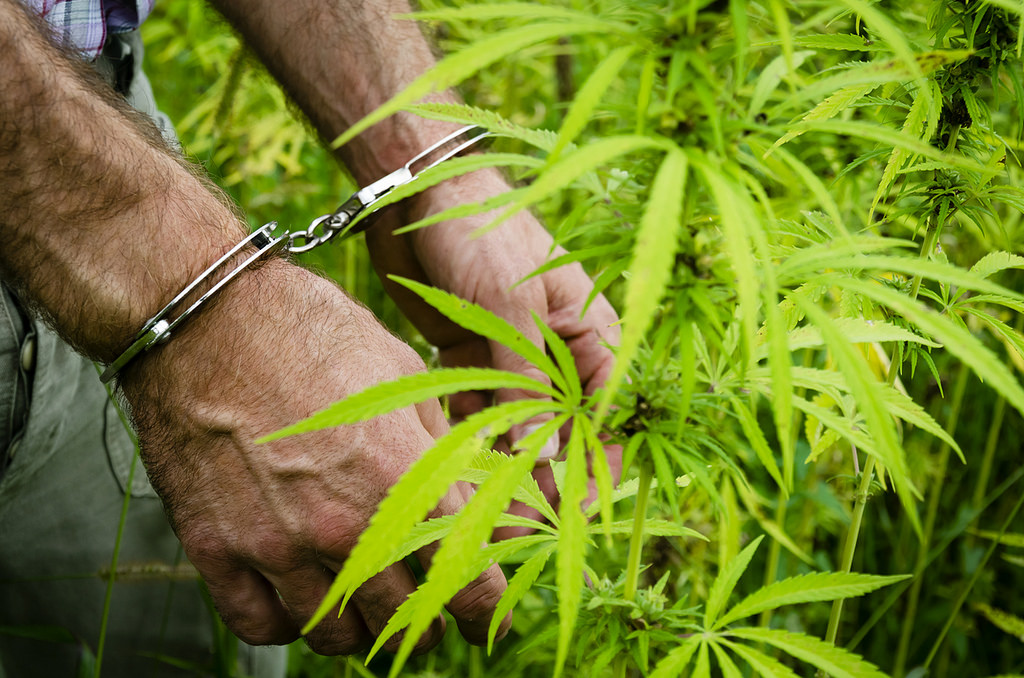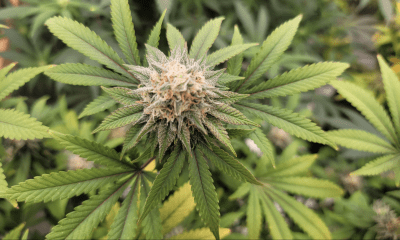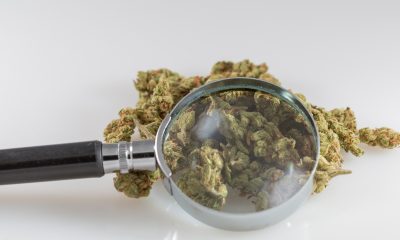Politics
Are Police Breaking The Law To Campaign Against Marijuana Legalization?

Police in two states with marijuana initiatives on their ballots this November are using official law enforcement social media accounts to campaign against the measures, in what could be a violation of elections rules.
In Utah, Salt Lake City-based FOX-13 “found a few police agencies [using] their official” accounts to “urge voters to reject Proposition 2,” which would legalize medical cannabis in that state.
That prompted the state elections director to issue a warning against using public resources—including a police department’s social-media account—for political purposes.
While the offense is technically a crime, it is rarely prosecuted.
Both the Beaver County Sheriff’s Office and the police department in Hurricane, a small city in Utah’s far southwest, removed the posts following the warning from Justin Lee, the elections director for the state lieutenant governor’s office.
Over in North Dakota, a similar law prohibiting “corrupt practices” explicitly bans the “use of any state or political subdivision services or property for political purposes.”
But that didn’t stop Cavalier County Sheriff Greg Fetsch from using his department’s official Facebook page to oppose Measure 3, which would legalize recreational marijuana in the state.
When contacted by Valley News Live, Fetsch defended his actions—and went one further, claiming that legalization gives people the right to “sit and smoke marijuana in front of children.”
While there is no specific enumerated prohibition against consuming the drug in that manner, North Dakota’s proposed law does retain all existing criminal penalties for “any individual who distributes marijuana to those under the age of 21.” It’s also not clear how police would be unable to punish such conduct under existing child-endangerment laws.
In any event, a perusal of the agency’s Facebook page on Monday reveals that the offending post has been removed—presumably on the recommendation from Fetsch’s (government-funded) attorneys.
North Dakota has some of the harshest marijuana laws in the country. Possession of any amount of cannabis within 1,000 feet of a school is a felony, as is sale of any amount. A second offense of sales—again, of any amount—carries an automatic mandatory minimum sentence of three years in prison.
The police’s legally dubious involvement comes at a critical time—in a close campaign, with Election Day a little more than a month away.
According to polling, 45 percent of North Dakota voters say they support legalization, with 39 percent opposed and 15 percent still undecided. Utah’s measure also has strong support, according to surveys.
In other states, police agencies have used their public platforms to push other drug war-related misinformation, such as the long-debunked gateway-drug theory, a very slippery connection between marijuana legalization and crime and the extremely puzzling contention that opiate use leads to superhuman strength.
DEA Task Force Backs Group Fighting Medical Marijuana in Utah














